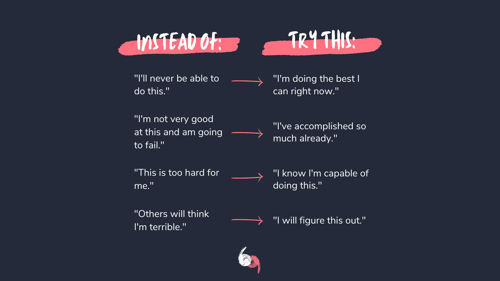Over the past year, we’ve all had to adjust to the virtual workplace and the challenges that come with it – from being interrupted on Zoom calls with Internet latency to missing out on the casual chit chat as you wait for the kettle to boil with your colleagues, or even being hired during the pandemic and therefore not feeling connected to your new team. As the world starts to open up again though, many of us are getting ready to head back into the office.
Whether you’re worried about a difficult face to face conversation with an employee, lack of confidence in a real life meeting, or asking your new supervisor too many questions, there are ways you can overcome these challenges through effective communication. Keep reading for our top tips and tools to make you feel supported and empowered as you return to the workplace.
1. Be an active listener during tea breaks
One of the things we miss out on when we WFH (work from home) is the informal little moments by the coffee machine or watercooler. It’s these moments of respite and small talk that keep us motivated - whether it’s remarking on the weather, a quick weekend catch up or a nice film recommendation. As well as giving us a chance to take our mind off work, it’s also an opportunity to share our worries and listen to others.
Be respectful of how much impact the last year has had on different people’s lives and take extra time to listen to them. It’s important to fully interact with the person we are listening to, rather than, as many of us are prone to do, only half listen, or think about ourselves. Eye contact, smiles, open body language and small filler sounds are all part of active listening - by doing this, you will find that people give you more detail and become more receptive to what you have to say too. You will also find that it is easier to flow into a conversation, as the two of you build a comfortable rapport. If you want to build those office relationships once more, check-in with your colleagues regularly and go the extra mile to connect with them, both virtually and face to face.
2. Use your whole body again

During the pandemic, we've become accustomed to delivering presentations virtually, with the challenge of engaging listeners and delivering impact even when they can only see your head and shoulders. As we head back into the office though, many of us can go back to delivering a presentation standing up, using the whole body to wow the crowd. Remember body language is important, and the more you let your body take up space, the more signals you'll send to your brain, telling yourself you're relaxed. Own the space you're in - reach your feet all the way to the floor, let your arm gestures aid what you're saying and embrace the feeling of freedom again - you're not confined to a pixelated screen with Internet lag anymore! If you're nervous about presenting in real life, imagine you've got a group of five backing singers behind you - they're there to support you and put you at ease. Watch this video for five tips to nail your presentation.
3. Connect with new colleagues

Many people have started new jobs during the pandemic, and this has certainly been a new and strange experience. You probably had to enter a Zoom meeting with a sea of new faces and get given a whole new set of tasks to do from the comfort of your bedroom, waiting months to meet your colleagues in real life. See this as an advantage though - you’ve already overcome the meeting new people bit, and now all you have to do is see them face-to-face rather than on a laptop screen! Don’t be afraid to ask lots of questions and get to know your colleagues - even if you’ve chatted regularly to them virtually, there’s nothing like a lunchtime walk around the block or a moment in the office kitchen to develop your relationship with colleagues.
Open questions (the ones that begin with ‘what, ‘how’ or 'why’) tend to be more powerful than closed questions because you are inviting the other party to open up, share and connect. You're essentially telling them that you want to know more about them and that you’re interested in what they think. If you’re nervous about communicating with them in person rather than screen to screen, reach out to them and arrange to meet for a coffee beforehand or arrive at the office with them for moral support.
4. Tune into your team

Directors and team leaders, this one’s for you. It goes without saying that the pandemic has been a different experience for everyone, and some of us are more ready to return to work than others. With this in mind, it’s important to communicate with your team and make sure each person feels comfortable and heard. Give them time to adjust and be prepared for mistakes to be made - it’s a learning process for all of us. From setting out a clear structure of how things will work going forward, to spending time listening to people's concerns or needs, there are things you can do to make the transition back as smooth as possible. Don’t feel tempted to appear like you have everything 100% sorted - remember that one of our most effective ways of impressing someone is to let them know we are impressed by them. Read this blog for more tips on how to communicate with your team to earn their respect.
5. Boost real life meetings
Throughout the pandemic, we’ve become increasingly used to seeing no more than the heads and shoulders of our colleagues, and now it’s time to ditch the pyjama bottoms and slippers and put on actual clothes and shoes - the horror! When meetings were forced from a room buzzing with ideas to an online platform with interruptions coming from left, right and centre, we all took time to adjust. It’s time to go back to how it used to be - well, not completely! For many businesses, meetings are likely to be a mix of virtual and real-life - luckily, we now have experience in both!
7 tips for face to face meetings:
- Know your core goals for the meeting and stand by them - make a list of what you would like to add to the formal schedule in advance.
- Plan for difficult questions - write these out along with your possible responses.
- Make sure your body language helps you out - good posture and use of hands send confident signals to your brain and to others.
- Listen to your colleagues, giving them support, and in turn, they will be more inclined to listen to you. Try not to be judgemental when you hear something you disagree with.
- Always interject with something nice to create receptivity and show respect.
- If someone interrupts you, stop them, take a moment to neutralise the negative energy and then carry on calmly and without tension.
- Prepare what you want to say before the meeting, and have a firm grasp of the outcome you’d like to achieve and how you can turn this into specific, measurable, time-sensitive actions.
You’ll be acing the half-virtual-half-real-life meetings before you know it!
6. Interact with fellow commuters

Whether you’ve loved having that extra hour in the morning or you’re desperate to get a bit of ‘me time’ back so you can gather your thoughts and put on your favourite podcast, commuting is back in one form or another, and there are lots of things you can do to make the most of it. Many people say that the most productive part of their day is during their commutes - with no distractions, it’s a chance to reply to emails, catch up on the news or get your nose into a good book. It can also allow you to properly mentally adjust to the working day rather than walking a few steps from your bed to your desk. Whether you go in by car, train, bus or on foot, take time to notice the strangers you meet along the way - we've all been through a lot during the past year, and a genuine smile can make someone’s day - you will be surprised by its power.
7. Give yourself time to adjust

Returning to the workplace isn’t just about the office itself - it’s everything that comes with it - the post-work pub drinks, the new environment for a lunchtime stroll, getting home later in the evening so having less time to yourself. This will take some getting used to, and it’s important to give yourself time to adjust. It’s likely that you’ve got very used to socialising with minimal people over the last 18 months, and the idea of going to the pub with people you haven’t seen for over a year might fill you with anxiety. Take it one step at a time - if that means being less sociable to start with, that’s fine! No one will be offended if you say you’re not quite ready for socialising yet, or feeling daunted about meeting new colleagues. Celebrate the small things - making a coffee for someone at work, having a productive meeting or enjoying the sun during your break - they’re all things to feel good about!
8. Communicate well with yourself too!
Last but not least... know your limits and remain grounded. This can be a strange and difficult adjustment for everyone involved, and it’s important to remember that. Check-in with yourself regularly; if you notice a negative thought, try to swap it for a positive one. At the very least, assume the right posture and facial expression when you enter a conversation, and the rest will soon fall into place with a bit of practise. It’s completely normal to feel nervous about office communication, and that’s why it’s more important than ever that we communicate effectively. By doing so, we can boost office productivity and make the return to work process smoother for everyone involved.
If you’d like an extra helping hand to facilitate the adjustment, why not Book a FREE 15-minute Discovery Call so we can tailor something to your budget and needs?


